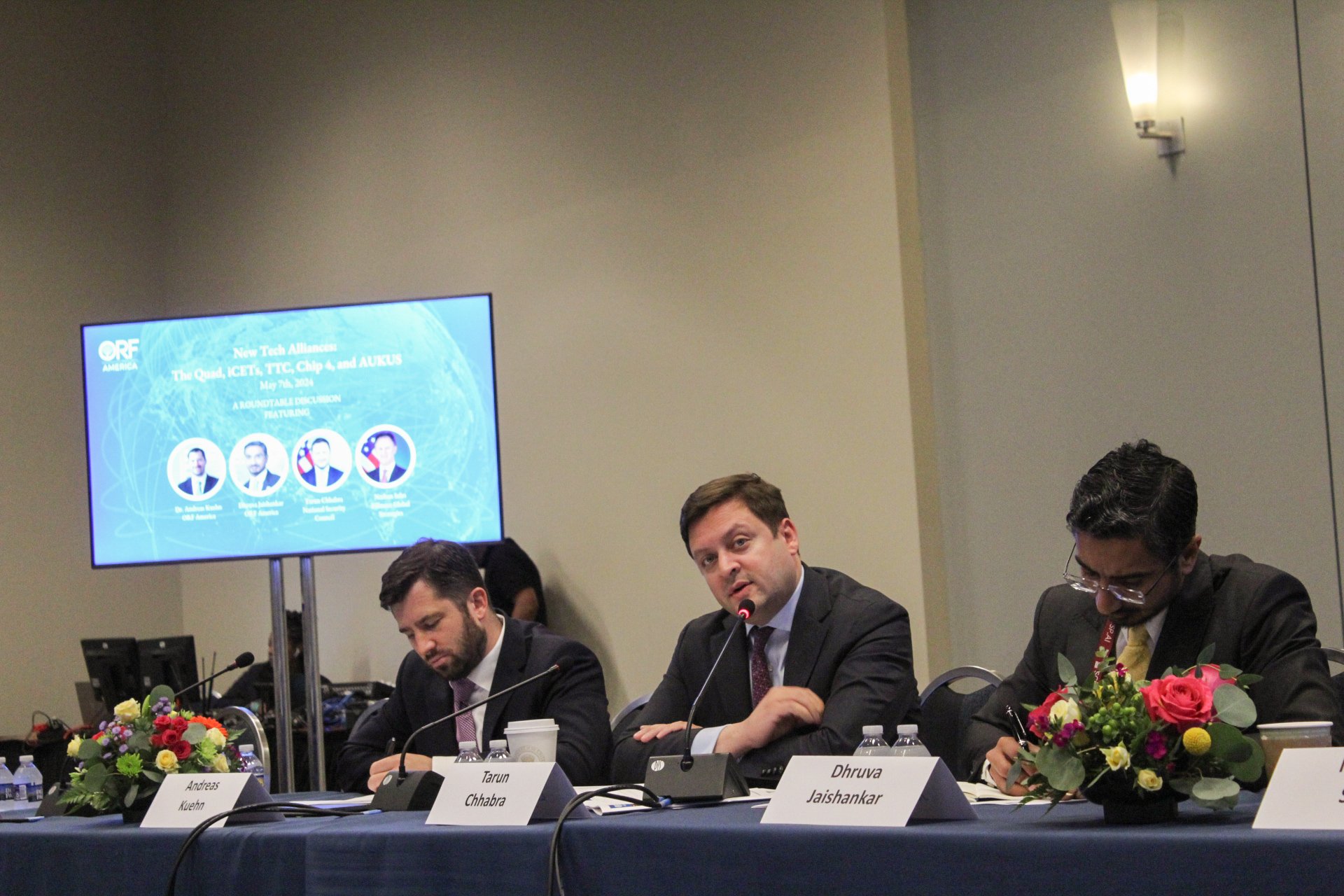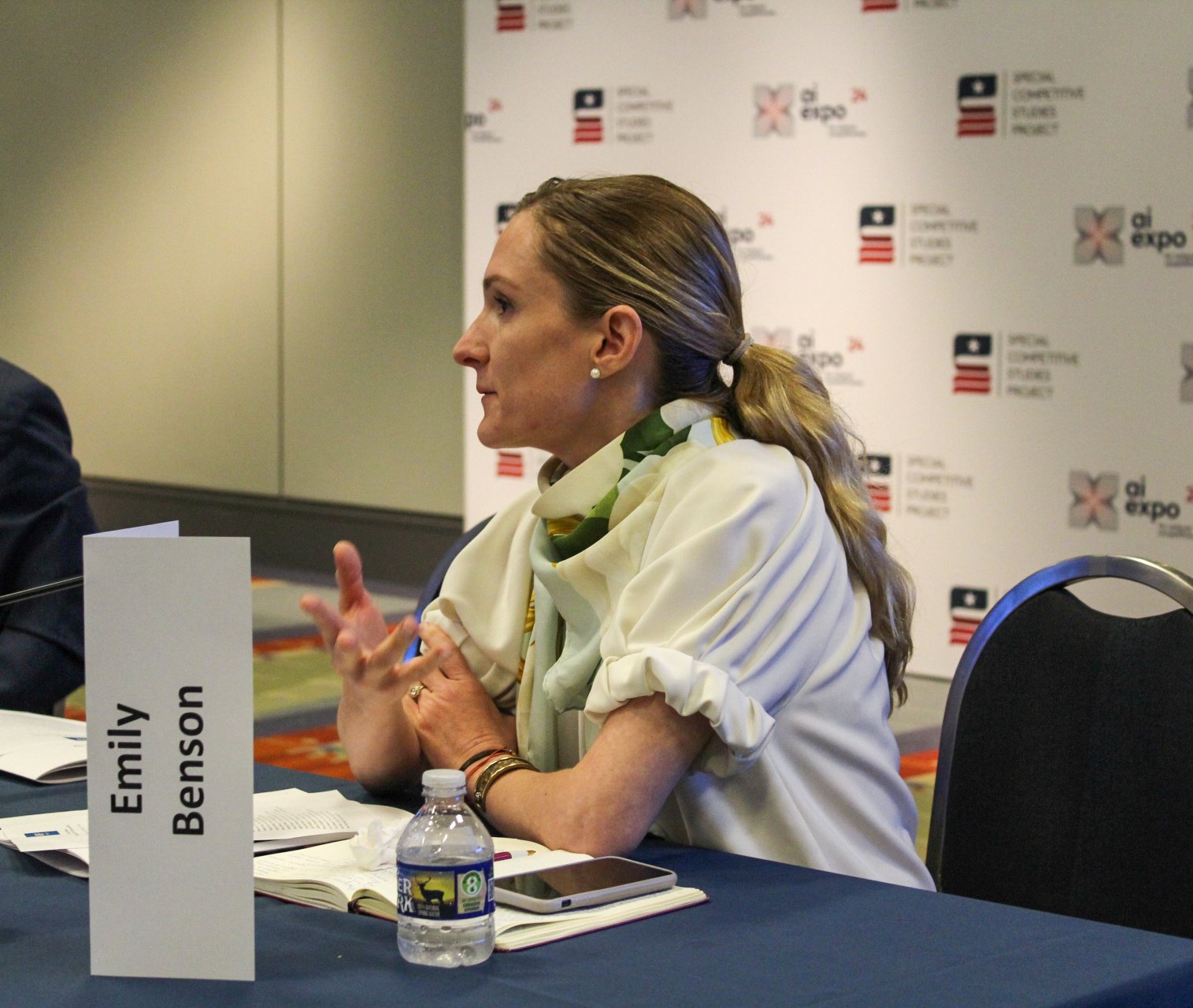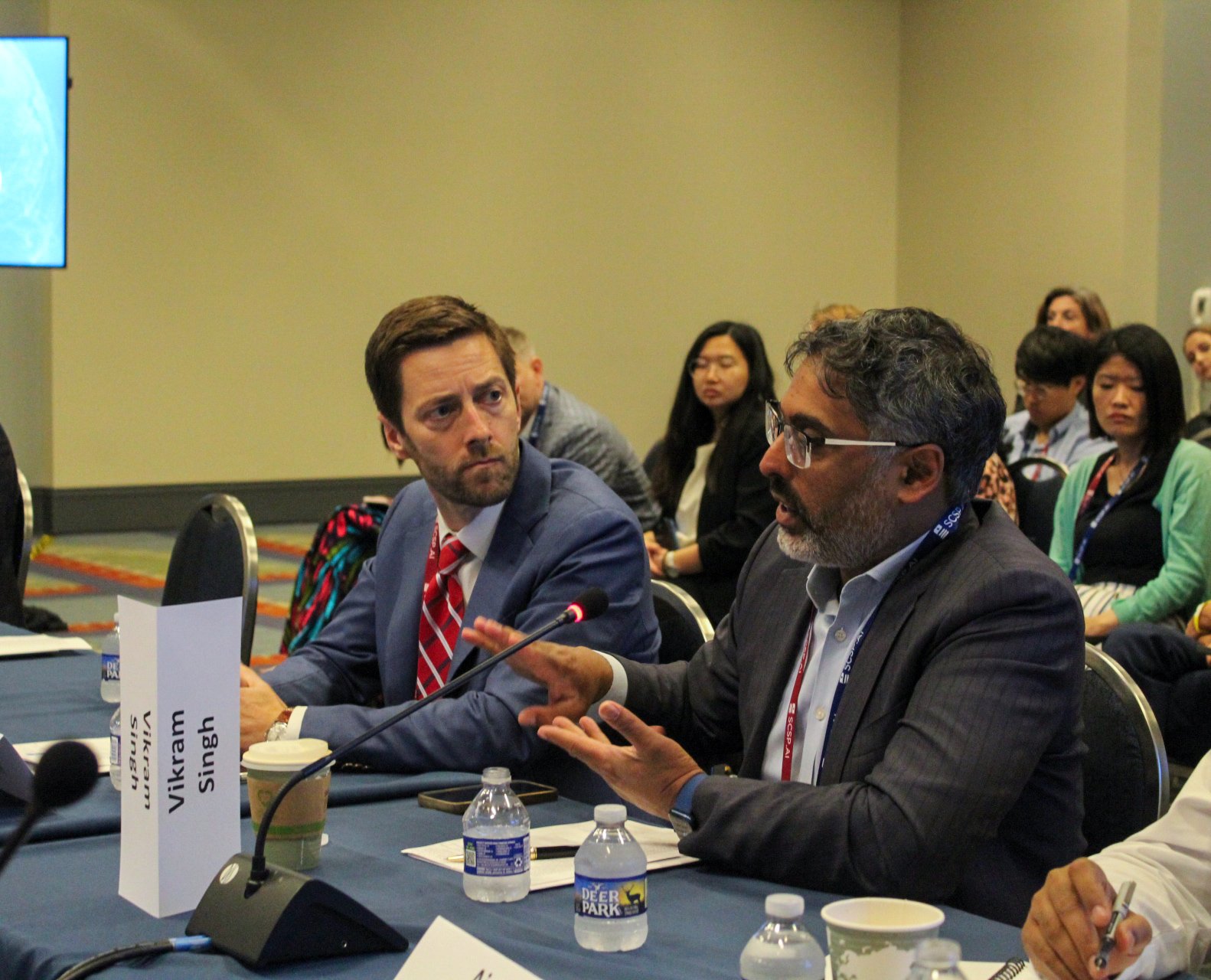On the sidelines of the SCSP AI Expo on May 7, 2024, ORF America hosted a roundtable on New Tech Alliances, bringing together technology policy experts to explore the evolving landscape of U.S.-led technology partnerships including the Quad, iCETs, TTC, Chip 4, and AUKUS. In recent years, the United States has engaged in a series of bilateral and minilateral negotiations with like-minded partners and allies that included technology as crucial agenda items.
Tarun Chhabra, Senior Director for Technology and National Security at the United States National Security Council, Ambassador Nathan Sales, former acting Under Secretary at the U.S. Department of State, along with ORF America’s Dhruva Jaishankar and Andreas Kuehn, provided opening remarks and analysis. This discussion put these partnerships into context for the private sector, policy-makers, academia, think-tanks, and the general public.
The interactive conversation covered the strategic importance of arrangements such as AUKUS and the U.S.-EU TTC and the impact of geopolitical tech competition on the private sector. With participants’ insightful exchanges on semiconductor supply chains, export controls, cybersecurity, AI, and cooperative research and development, the event provided an overview on the evolution of recent U.S.-led technology cooperation with like-minded partners, assessed geopolitical and geoeconomic competition with China, and laid out some of the challenges and opportunities facing companies within key technology ecosystems.
On May 7-8, 2024, SCSP hosted its first-ever AI Expo for National Competitiveness – alongside the second Ash Carter Exchange on Innovation And National Security – at the Walter E. Washington Convention Center in Washington DC. The AI Expo served as a forum for industry, government, and academic research entities to exhibit some of the latest technological breakthroughs — in AI, biotech, energy, networks, compute, microelectronics, manufacturing, augmented reality, and beyond — and discuss their implications for U.S. and allied competitiveness.





